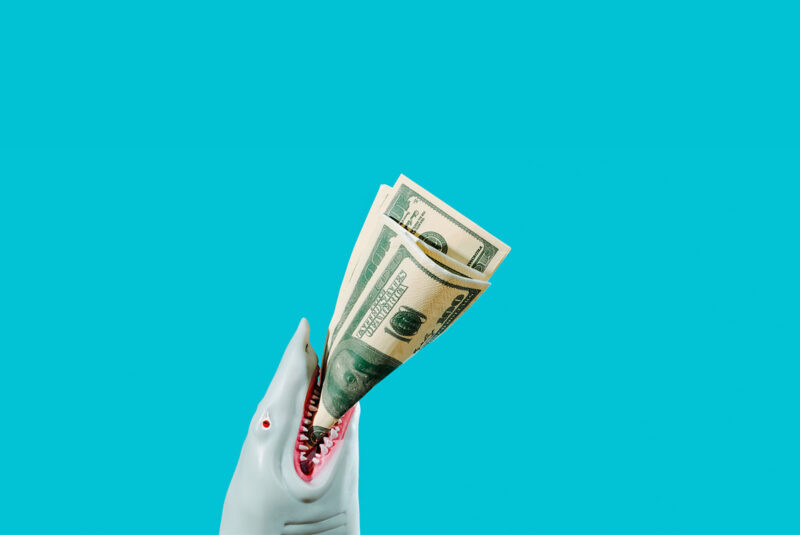If you understand how your personal (aka consumer) credit scores work, you already have a good idea of how business credit scores work.
But finding the right business loan for you can seem daunting if you don’t know what credit scores you need to qualify. And what happens if you don’t qualify because your personal credit scores are too low?
This guide will explain what goes into a business credit score, the minimum credit score requirements for different types of business financing, financing options for low credit scores and tips to help you improve your credit scores to get the funding you need.
What Is Business Credit?
A business credit report is like a report card of your business’s history managing different kinds of credit and debt – such as credit cards, loans, vendor accounts and lines of credit. Your business credit reports may also contain a business profile with details like the year your business started, how many employees you have and its financial information.
The three major business credit bureaus are:
Each credit reporting agency collects data and creates a credit report based on its credit scoring models.
Not all lenders, creditors and suppliers will report business activity to the business credit bureaus. But because reported business activity will help you build your business credit, it may be in your best interest to ask them to report business activity.
Business credit scores
Business credit scores are calculated using the information on your business credit reports. Each business credit bureau has its own credit scoring model, and you may see several credit scores on your business credit report, including:
- Dun & Bradstreet PAYDEX or Equifax® Payment Index: Companies receive a score from 1 – 100 that rates their payment history. Paying early can boost your score; late payments will lower it.
- Business creditworthiness (Credit Risk Score or Delinquency Predictor Score): The scale for this score varies by credit bureau. The score, which works much like a personal credit score, estimates the likelihood that a business will become severely delinquent on payments in the next 12 months.
- Business failure (Financial Stability Score): The scale for this score varies by credit bureau. It estimates the likelihood of a business failing or experiencing severe financial distress in the next 12 months.
You may also come across something called the FICO® Small Business Scoring Service℠ (SBSS℠) score. FICO® SBSS℠ scores range from 0 – 300. It may not be necessary for every business loan application, but you will need it if you’re applying for a Small Business Administration loan.
Some of the factors that go into calculating your business credit scores are payment history, accounts (past and present), credit utilization, business age, public records (like bankruptcies or collections), net worth and demographic data.
Why Is Your Credit Score So Important to Lenders?
Your credit score is an indication of how responsible you are managing debt and credit. As a business owner, your personal credit may be tied to your business depending on your business structure.
Since lenders don’t know you personally, they look at your scores and credit history to help them determine your reliability as a borrower and see how stable and/or successful your business is.
Lenders understand that some businesses, like startups or sole proprietors, may not have business credit reports or scores. This is another reason why lenders rely heavily on your personal credit score to make their lending decision, so you don’t always need a business credit score to get a small business loan.
What Is the Minimum Credit Score for Business Loans?
While there are ranges of credit scores that are considered better than others, technically, there’s no universal minimum credit score requirement for business loans. Each lender has their own credit score requirements based on the loan you’re applying for and if they’re looking at your business and/or personal credit, so make sure you check your eligibility before you apply.
Generally speaking, a personal credit score of 670 or higher and a business credit score of 80 or higher will get you more favorable loan terms. But let’s break down the credit score ranges:
- Low credit risk: A business credit score from 80 – 100 and a personal credit score of 740 or higher are considered very good-to-excellent scores and will likely get you any loan you apply for.
- Medium credit risk: A business credit score from 50 – 79 and a personal credit score of 640 – 739 are considered good and you’ll likely get more favorable loan terms.
- High credit risk: A business credit score from 1 – 49 and a personal credit score below 640 are considered fair to poor. With poor credit, you’ll find that you’re ineligible for most loans. Alternative financing options that don’t require a credit check may be a better option.
Keeping the ranges in mind, let’s take a look at the different kinds of business loans you can get and their credit score requirements.
Small Business Administration (SBA) loans
SBA loans are a type of term loan offered by lenders through SBA loan programs. Because SBA loans are government-backed loans, lenders can offer loans to entrepreneurs and small businesses that might otherwise be ineligible for other business loans. SBA loans come with other perks like high loan amounts, long repayment periods and low interest rates.
SBA loans don’t have a specific minimum credit score requirement, but lenders will set their own requirements. Because these loans are so competitive, lenders typically look for excellent credit scores:
- A personal credit score of at least 680 – but 720 is ideal
- A business credit score of at least 80 or a FICO® SBSS℠ score of at least 155
Lenders may also look at the personal credit scores of any co-owner(s) that owns at least 20% of the company.[1] This is because the SBA requires them to sign a personal guarantee, which makes the signer personally responsible for repaying the loan even if the business can’t.
Term loans
Term loans offered by lenders that are not backed by the SBA will have their own minimum credit score requirement by lender and loan type. The loan terms may not be as favorable as SBA loans, but they’re still good options.
You may find that these loans have stricter requirements than SBA loans. Lenders generally prefer:
- A personal credit score above 700
- A business credit score closer to 100
That being said, some lenders will work with borrowers with bad credit, so don’t count yourself out if that’s the case. You may also find that online lenders have more relaxed requirements than brick-and-mortar banks, so do your research before you apply. Just know that lower credit scores usually come with higher interest rates.
Equipment financing
Equipment financing uses the equipment you want to purchase as collateral for your loan, but lenders still require a credit check. Because the loan is backed by collateral, lenders are more likely to accept lower credit scores than if you applied for an unsecured loan to purchase the equipment.
Lenders typically look for:
- A personal credit score of 630 or higher
- A business credit score of around 40 or higher
How Can You Improve Your Business Credit Scores?
If your credit scores are too low to qualify for the financing you want, there are steps you can take to improve your credit scores. (This list applies to both business credit scores and personal credit scores.)
- Monitor: Take a look at your credit scores and credit reports to see what needs work.
- Dispute: Dispute errors on your credit report with the responsible credit bureau.
- Pay debts: Pay off your existing debts as quickly as you can to reduce your credit utilization (a big part of scoring models). Consolidate debt or negotiate new loan terms with lenders to make debt repayment more manageable.
- Make on-time payments: Paying your bills on time is probably the most important step to improving your credit scores.
- Borrow responsibly: Keep business credit card balances low going forward and don’t borrow more than you can afford to repay.
- Diversify credit: Although credit mix doesn’t account for much of your score, it can help boost your scores in addition to managing your credit responsibly (aka keeping your utilization low and paying on time).
- Build credit: Build credit by becoming an authorized user on a consumer credit card, getting a credit builder loan, getting a secured credit card or opening new tradelines (aka credit accounts) with vendors, suppliers and lenders.
- Increase business revenue: This is more for your business credit score than your personal, but increasing your revenue and demonstrating financial stability can help boost the Financial Stability Score of your business.
Continue to monitor your credit reports and scores often. Catching errors early may help prevent your scores from dropping unnecessarily.
Can You Get a Business Loan Without a Credit Check?
If you want to get a business loan without a credit check, your options are limited – but there are a few ways you can get the funding you need. You may find that some of these options come with higher fees, interest rates and annual percentage rates (APRs) than traditional loans.
- Invoice financing: It’s a short-term loan that lets businesses borrow money against outstanding customer invoices. The invoices are used as collateral. The business is still responsible for collecting money from their customers and must repay the loan even if their customers don’t pay their invoices.
- Invoice factoring: This is similar to invoice financing. A lender will purchase your outstanding invoices and pay you a percentage of the amount upfront. The lender takes over collecting unpaid invoices and pays you the difference once they’ve received payment from your customers.
- Inventory financing: This is a short-term loan or line of credit that allows you to purchase inventory for your business to sell at a later date. The inventory is used as collateral for the loan.
- Merchant cash advance: This is the business version of payday loans. It’s a way to quickly borrow (and pay it off) money against future sales but it can come with very high fees. These are considered a risky option.
- Crowdfunding: You can use crowdfunding to receive funds from friends, family members and even total strangers. You can raise the money on your own, or someone else may raise it on your behalf. Just remember to keep records of how much you receive. What you make can be considered taxable income.
Sometimes Business Is Personal
Credit scores are one of the most important factors lenders consider when you’re applying for a business loan. But it’s only one piece of your business’s financial puzzle. Lenders will look at the bigger picture when they’re making their lending decision.
Remember, there isn’t one minimum credit score that applies to all loans, and your personal credit score is usually weighed more heavily than your business credit score. Read lender requirements carefully to see what scores you need to qualify for the loan you want. The higher your credit scores, the more loan options you’ll have.
The Short Version
- While there are ranges of credit scores that are considered better than others, technically, there is no universal minimum credit score requirement for business loans
- Lenders rely heavily on your personal credit score to make their lending decision, so you don’t always need a business credit score to get a small business loan
- If you want to get a business loan without a credit check, your options are limited – but there are a few ways you can get the funding you need
U.S. Small Business Administration. “Collateral and Credit.” Retrieved May 2022 from https://www.sba.gov/partners/lenders/7a-loan-program/types-7a-loans




